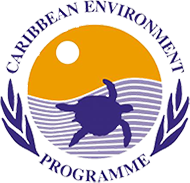Resources
Type: Factsheet
Showing 1 - 20 of 30
30 results found

The GEF LAC Cities project will facilitate circular actions at the city level to accelerate the transition to a circular economy, in line with government and business commitments on addressing marine plastics and plastic pollution.

The Regional Strategy and Action Plan for the Valuation, Protection and/or Restoration of Key Marine Habitats in the Wider Caribbean 2021 – 2030 (RSAP) was developed to address the continued deterioration of marine resources. It provides strategic direction, practical solutions, and specific actions to conserve and restore these vital habitats

The Regional Strategy and Action Plan for the Valuation, Protection and/or Restoration of Key Marine Habitats in the Wider Caribbean 2021 – 2030 (RSAP) was developed to address the continued deterioration of the region’s marine resources.

The RSAP provides for private sector involvement in collaborative efforts to develop pilot projects and participate in the collection and analysis of the data it needs for strategic decision-making

The ecosystem of the Caribbean has evolved over millions of years of geological and biological processes that have shaped the islands and marine environments of the region. These processes have created diverse and complex habitats that have fueled the Caribbean’s spectacular biodiversity.

The brief outlines the causes and effects of sargassum influxes, presents a sargassum strategy framework, highlights the complexity in Caribbean transboundary coordination and outlines important sargassum stakeholders.

This guidance brief is for innovators, entrepreneurs, and small and medium sized businesses interested in or having started a business initiative that makes use of sargassum as a resource or raw material. This brief is based on the 2021 update to the UNEP-CEP white paper on Sargassum influxes to the Caribbean region.

This summary document is based on the updated UNEP-CEP Sargassum White Paper.
The brief:-

Civil society organisations (CSOs) have an important role to play in shifting mindsets to view sargassum as an opportunity rather than a threat.

SOCAR demonstrates that development opportunities in the Wider Caribbean Region, and economic sectors that depend on the coastal and marine environment, are at high risk from the negative impacts of marine pollution.

The State of the Cartagena Convention Area: An Assessment of Marine Pollution from Land-based Sources and Activities in the Wider Caribbean Region (SOCAR)3 was conducted to determine exactly that - how pollution from land-based sources (LBS) negatively affects the region’s coastal and marine environments and the human communities that depend upon them.

The SOCAR report provides a quantitative baseline for monitoring and reporting under the Cartagena Convention and LBS Protocol. The report gives specific recommendations for local, national, sub-regional and regional actions to reduce marine pollution.

Interesting facts about 30 marine species found in the Wider Caribbean Region including: West Indian Manatee, Fin Whale, Bryde's Whale, Common Minke Whale, Cuvier's Beaked Whale, Sperm Whale, Pygmy Sperm Whale, Dwarf Sperm Whale, Gervais' Beaked Whale, Sei Whale, Blainville's Beaked Whale, True's Beaked Whale, North Atlantic Right Whale, Sowerby's Beaked Whale, Killer Whale, Humpback Whale, Fra

The project will support countries in addressing the pervasive nature of plastic litter and solid waste management, either directly or indirectly, via programmes aimed at creating the policy, legislative and institutional capacity to reduce and manage plastic waste.

The overall goal of this project was to develop capacities and information systems, as well as pilot test their application, for use by governments and nongovernmental organizations in order to support decisions on planning and managing coastal resources with an ecosystem-based management (EBM) approach.

This joint United Nations Human Security Programme is aimed at enhancing resilience and human security of selected communities in rural and urban Jamaica. It will advance the 2030 Agenda by addressing the economic, environmental, personal and health insecurities facing targeted communities.

The Trash Free Waters Initiative is a partnership between the United States Environmental Protection Agency (EPA), Peace Corps, the United Nations Environment Programme (UNEP) Cartagena Convention Secretariat, UNEP Regional Office for Latin America and its Caribbean Sub-Regional Office.

The Land-Based Sources of Marine Pollution (LBS) Protocol (signed in 1999 and adopted in 2010) and the Caribbean Regional Action Plan for Marine Litter (RAPMaLI) (developed in 2008 and updated in 2010) are regional frameworks for our marine litter projects and activities.

Plastics have become a valuable commodity and an important part of everyday life, more so that global plastic production has increased from 5 million tons in the 1950’s to over 250 million tons in 2006.But the high volume and the quality which makes this material so useful, is also harmful for the environment , especially our marine environment.

The LBS Protocol, which was adopted in 1999 and entered into force in 2010, is one of three Protocols of the Cartagena Convention. This legal instrument consists of obligations to reduce the negative environmental and human health impacts of land-based pollution in the Wider Caribbean Region (WCR).
Showing 1 - 20 of 30





